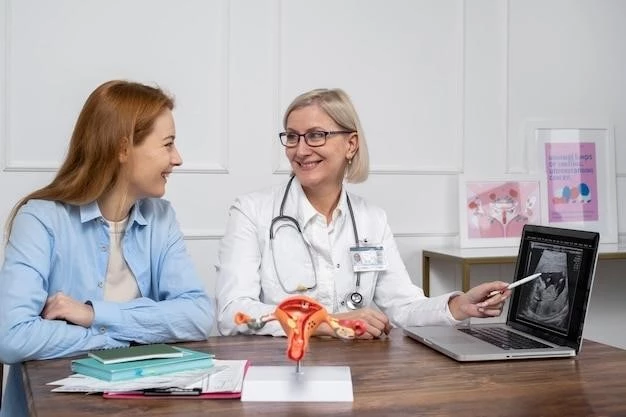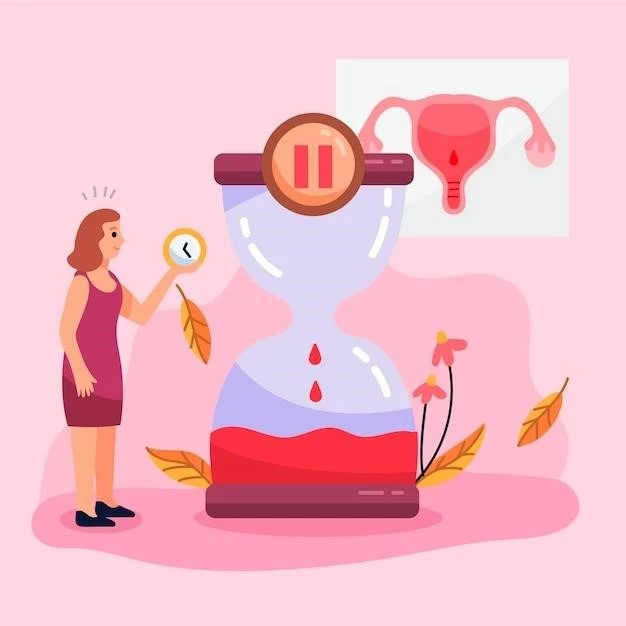Introduction to Stein-Leventhal Syndrome
Stein-Leventhal syndrome, also known as polycystic ovarian syndrome (PCOS), affects many women globally. Learn about the causes, symptoms, and impact on reproductive health.
What is Stein-Leventhal Syndrome?
Stein-Leventhal syndrome, also known as polycystic ovarian syndrome (PCOS), is a disorder characterized by elevated male hormone levels and irregular ovulation. Women affected by this syndrome may experience infertility. Understanding its symptoms, diagnosis, and treatment is crucial for managing this condition effectively. Seek medical advice for personalized care.
Historical Background of Stein-Leventhal Syndrome
Stein-Leventhal syndrome, first described in 1935, is a condition characterized by elevated male hormones and irregular ovulation, impacting female fertility. Understanding its origins is crucial in addressing this complex disorder.
The early 20th-century gynecologists Irving F. Stein, Sr., and Michael L. Leventhal were pioneers in identifying and characterizing what became known as Stein-Leventhal syndrome. Their groundbreaking work shed light on this disorder’s hormonal nature and its impact on female fertility.
Discovery by Irving F. Stein, Sr., and Michael L. Leventhal
Discover the pioneering work of gynecologists Irving F. Stein, Sr., and Michael L. Leventhal who first identified Stein-Leventhal syndrome in 1935, shedding light on hormonal imbalance and infertility in women.
Symptoms of PCOS
Polycystic Ovarian Syndrome (PCOS) manifests with various symptoms, including irregular menstrual cycles, hirsutism, acne, and infertility. Recognizing these signs and seeking early medical intervention is crucial for managing the condition effectively.
Diagnostic Criteria for Polycystic Ovarian Syndrome (PCOS)
Diagnosis of Polycystic Ovarian Syndrome (PCOS) entails recognizing symptoms like irregular menstrual cycles, hirsutism, and issues related to ovulation and hormone levels. Seeking medical advice for proper evaluation and treatment is crucial.
Criteria for Diagnosis
Diagnosing Polycystic Ovarian Syndrome (PCOS) involves evaluating symptoms like irregular menstrual cycles, presence of excess male hormones, and characteristic ovarian cysts. Seek medical evaluation to confirm the diagnosis and tailor a suitable treatment plan.
Prevalence of Stein-Leventhal Syndrome
Stein-Leventhal syndrome, also known as PCOS, affects approximately 5% of women worldwide, contributing significantly to female infertility cases. Recognizing and addressing this condition early is crucial for optimal management.
Global Impact of PCOS
Polycystic Ovarian Syndrome (PCOS) affects millions of women globally, leading to irregular menstrual cycles, hirsutism, infertility, and other health challenges. It is essential to raise awareness and seek appropriate medical care to address the impact of PCOS on women’s well-being worldwide.
Causes of Polycystic Ovarian Syndrome (PCOS)
Polycystic Ovarian Syndrome (PCOS) can be caused by hormone imbalances, genetics, and lifestyle factors. Understanding these underlying causes is crucial for effective management. Consult with a healthcare provider for personalized guidance.
Causes of Polycystic Ovarian Syndrome (PCOS)
Polycystic Ovarian Syndrome (PCOS) is a complex disorder influenced by hormonal imbalances, genetic predispositions, and environmental factors. Understanding these underlying causes is essential in managing the condition effectively. Consult with healthcare professionals to explore tailored treatment options based on individual needs.

Treatment Options for Stein-Leventhal Syndrome
Effective management of Stein-Leventhal syndrome involves various treatment options, including lifestyle modifications, medications to regulate hormones, and surgical interventions. Personalized care plans tailored by healthcare professionals can help address symptoms and improve reproductive health outcomes. Stay informed and consult with your healthcare provider for the best treatment approach.
Management Strategies
Effective management of Polycystic Ovarian Syndrome (PCOS) involves a multifaceted approach that may include lifestyle modifications, medications to regulate hormone levels, and surgical interventions to address specific symptoms. It is essential to work closely with healthcare providers to develop a personalized treatment plan tailored to individual needs and goals.

Complications Associated with Polycystic Ovarian Syndrome (PCOS)
Polycystic Ovarian Syndrome (PCOS) can lead to various health risks such as diabetes, heart disease, and infertility. Early detection and appropriate management are crucial in preventing these complications. Consult healthcare professionals to address PCOS effectively.
Complications Associated with Polycystic Ovarian Syndrome (PCOS)
Polycystic Ovarian Syndrome (PCOS) can lead to various health risks such as diabetes, heart disease, and infertility. Early detection and appropriate management are crucial in preventing these complications. Consult healthcare professionals to address PCOS effectively.
Relationship Between Stein-Leventhal Syndrome and Infertility
Stein-Leventhal syndrome, now known as PCOS, is closely linked to female infertility. Understanding how this condition impacts reproductive health is crucial in developing effective treatment plans. Seek medical advice for personalized care and fertility management.
Stein-Leventhal syndrome, also known as PCOS, significantly impacts reproductive health in women, leading to irregular menstrual cycles, hormonal imbalances, and fertility challenges. Understanding the interplay between this syndrome and reproductive processes is vital for effective management. Consult healthcare providers for comprehensive care tailored to your specific needs.
Surgical Interventions for PCOS
Explore surgical interventions as a potential treatment option for managing PCOS. Discuss with healthcare providers to determine if surgical procedures could be beneficial in addressing specific symptoms and improving reproductive health outcomes.
Impact on Reproductive Health
Stein-Leventhal syndrome, also known as PCOS, significantly affects female reproductive health by causing irregular menstrual cycles, hormonal imbalances, and fertility issues. Recognizing the impact of this condition on reproductive function is essential for effective management. Seeking medical advice for personalized care and fertility solutions is crucial for women affected by PCOS.
Lifestyle Modifications for Managing PCOS
Implementing lifestyle modifications such as a balanced diet and regular exercise is essential in managing PCOS effectively. Consult healthcare providers for personalized advice on lifestyle changes that can improve symptoms and overall well-being.
Importance of Diet and Exercise
Diet and exercise play a crucial role in managing PCOS by helping regulate hormone levels and promoting overall well-being. Adopting a balanced diet and incorporating regular physical activity can improve symptoms such as irregular menstrual cycles and excess weight commonly associated with PCOS. Consult with healthcare professionals to create a personalized diet and exercise plan that supports your health goals and enhances your quality of life.
Renaming Controversy⁚ PCOS vs. Stein-Leventhal Syndrome
Amid the debate over naming conventions, understanding the historical significance of PCOS vs. Stein-Leventhal Syndrome can provide insight into the condition’s identity. Consult with healthcare providers for guidance on terminology and its implications in clinical practice.
Proposal for Changing Terminology
Considering the ongoing debate between PCOS and Stein-Leventhal Syndrome terminology, addressing the implications of each name is essential. Consult healthcare professionals to understand the historical context and current recommendations for naming conventions in the context of this condition.
Research Advances and Future Directions in Stein-Leventhal Syndrome
Stay informed about the latest research developments in Stein-Leventhal Syndrome to understand potential advancements in diagnosis, treatment, and management strategies. Explore promising areas of study to enhance care for individuals affected by this condition;
Promising Areas of Study
Ongoing research in Stein-Leventhal Syndrome focuses on potential advancements in diagnostic techniques, novel treatment modalities, and understanding the genetic and environmental factors influencing the condition. Exploring these promising areas of study can lead to improved outcomes and better management strategies for individuals affected by this syndrome. Stay updated on the latest developments in Stein-Leventhal Syndrome research for comprehensive care and better treatment options.
